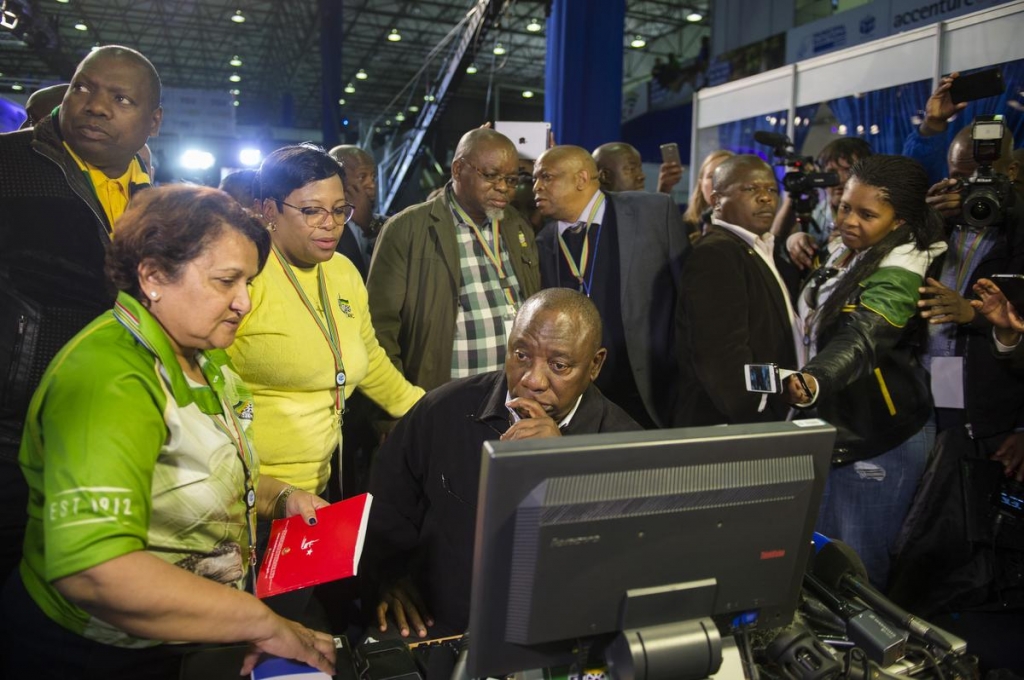-
Tips for becoming a good boxer - November 6, 2020
-
7 expert tips for making your hens night a memorable one - November 6, 2020
-
5 reasons to host your Christmas party on a cruise boat - November 6, 2020
-
What to do when you’re charged with a crime - November 6, 2020
-
Should you get one or multiple dogs? Here’s all you need to know - November 3, 2020
-
A Guide: How to Build Your Very Own Magic Mirror - February 14, 2019
-
Our Top Inspirational Baseball Stars - November 24, 2018
-
Five Tech Tools That Will Help You Turn Your Blog into a Business - November 24, 2018
-
How to Indulge on Vacation without Expanding Your Waist - November 9, 2018
-
5 Strategies for Businesses to Appeal to Today’s Increasingly Mobile-Crazed Customers - November 9, 2018
South Africa’s ruling party suffering biggest electoral blow
The DA is the largest opposition party that poses a major challenge to the ANC, which could probably lose control of three more major cities – Pretoria, Johannesburg and the Nelson Mandela Bay to the DA – in the elections, according to the latest Ipsos opinion polls.
Advertisement
With about two-thirds of the vote counted, the ANC had won 54% of the national vote, compared to the Democratic Alliance, which held 27%.
As the final results of Wednesday’s elections were announced Saturday night, it was clear that the ANC, the party of Nelson Mandela, had suffered steep declines in support in almost all of South Africa’s major urban areas, where middle-class black voters punished a party that is now known as much for its culture of corruption as for its heroic liberation past.
The pro-business Democratic Alliance wrested control of Pretoria and its surrounding Tshwane metropolitan area, and the manufacturing city of Port Elizabeth, from the party now led by President Jacob Zuma. Although the ANC will keep a majority of their seats after this election, the insurgent opposition parties of the Democratic Alliance and Economic Freedom Fighters have made significant progress in their development.
Mmusi Maimane, the DA leader, called the results a “vote for change”. The South African economy has stagnated since the global financial crisis in 2008.
The African National Congress – the party of Nelson Mandela – just had its worst election since 1994.
“We are now going to do an introspective look at ourselves”, said Cyril Ramaphosa, vice president of both the ANC and the country.
The ANC has said the party will “reflect and introspect where [their] support has dropped” and would still try to form coalitions to govern the municipalities where it lost its majority.
It blamed a “narrow focus on internal factional battles, the corruption scandals and the growing distance from the people” for eroding the party’s high moral ground and weakening its political capacity to play “its historical role of leading society”.
The results for the ANC could put pressure on Zuma to leave office before his mandate ends in 2019, political analysts said.
The ANC remains South Africa’s top party at the national level.
But neck-and-neck races between the ANC and DA in Johannesburg and Tshwane mean the EFF could be needed for coalitions there.
“They are a ringing endorsement of the ANC’s service delivery programme by the citizens of South Africa”.
Advertisement
The ANC has lost its grip on the major cities where millions of black people are now looking beyond its liberation struggle credentials and focusing on weak growth prospects for an economy teetering on the edge of a recession. The Constitutional Court recently said Zuma violated the constitution and instructed the president to reimburse the state $507,000.





























